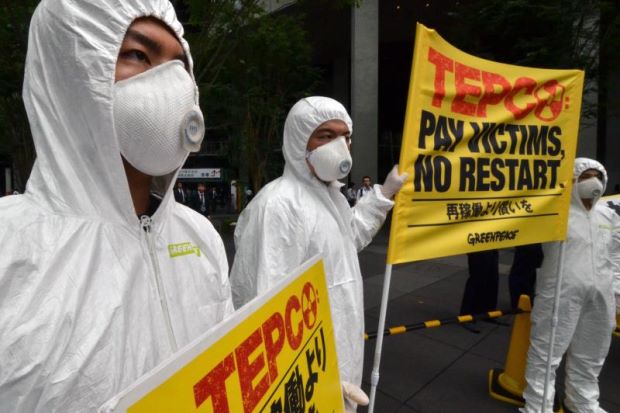I have blogged extensively about the nuclear disaster at Fukushima and its aftermath. I think it is very important for the world to understand all the different kinds of repercussions from the disaster. In addition to the nuclear materials that were released into the environment, there have been political impacts, economic impacts, social and psychology impacts, etc. I think it is important for people to know just how extensive the disruption to a society can be when there is a major nuclear accident.
The Japanese government under Prime Minister Abe has made nuclear power in Japan and nuclear technology exports a centerpiece of efforts to stimulate the Japanese economy. The government has not been completely forthcoming with the Japanese people about the causes of and the damage caused by the Fukushima disaster. Recently, laws have been passed to suppress criticism of the government over the Fukushima disaster. Any reporters who talk about problems connected to Fukushima can be arrested if they are not part of the government approved pool of reporters. The government wants to restart the Japanese nuclear reactor fleet but understands that a majority of the Japanese public is strongly opposed to any use of nuclear power in Japan. A new watchdog agency has been created for regulating nuclear power in Japan and its requirements are much more stringent than pre-Fukushima requirements.
Hundreds of thousands of Japanese citizens have protested Japan's plan to restart the forty eight nuclear reactors that have been turned off since the Fukushima disaster in March of 2011. Recently, protesters have disrupted TEPCO shareholders meetings demanding that TEPCO abandon plans to restart nuclear power reactors at power plants other than Fukushima. Some of the protesters wore full body radiation protection suits to call attention to the fact that evacuated residence of Fukushima must wear such suits to visit their old homes. There are estimates that some Fukushima residents may have to wait for decades to return to their homes if they can return at all.
Some TEPCO shareholders are concerned that the nuclear reactors in their local areas may be unsafe and could be prey to disasters like Fukushima. There were calls for TEPCO to abandon nuclear power plants completely and replace them with renewable energy generation. Unfortunately for the protesting shareholders, a majority of TEPCO stock is currently owned by a special fund that the government set up to rescue TEPCO. Given the official position of the Abe government, it is highly unlikely that the proposal for TEPCO to abandon nuclear power will pass with the shareholder vote.
Japan is very poor in fuels such as coal, oil, natural gas and uranium. On the other hand, Japan is very rich in possible alternative and renewable sources such as wind, tide, and geothermal. With their sophisticated research facilities and industrial base, Japan could be a world leader in renewable energy. However, it would take a major push by the Japanese government and, right now, the Japanese government is backing nuclear power.
